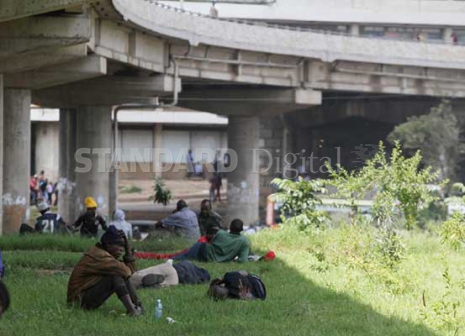
The recent upsurge of glue sniffing street children has made walking on certain streets in the city centre a nightmare. It is worse if one is carrying food, a handbag or using a mobile phone. The rowdy youths harass shoppers for money, snatch valuables or pickpocket unsuspecting citizens.
According to city residents who spoke to Metropolitan, the petty criminals who pose as street families have invaded streets in Nairobi, bringing to an end a long spell when people felt safe even in alleys. They have invaded sections of Market Road, Kenyatta Avenue, Kimathi Street and Aga Khan Walk in the CBD, Ralph Bunche Road in Upperhill and Yaya Centre.